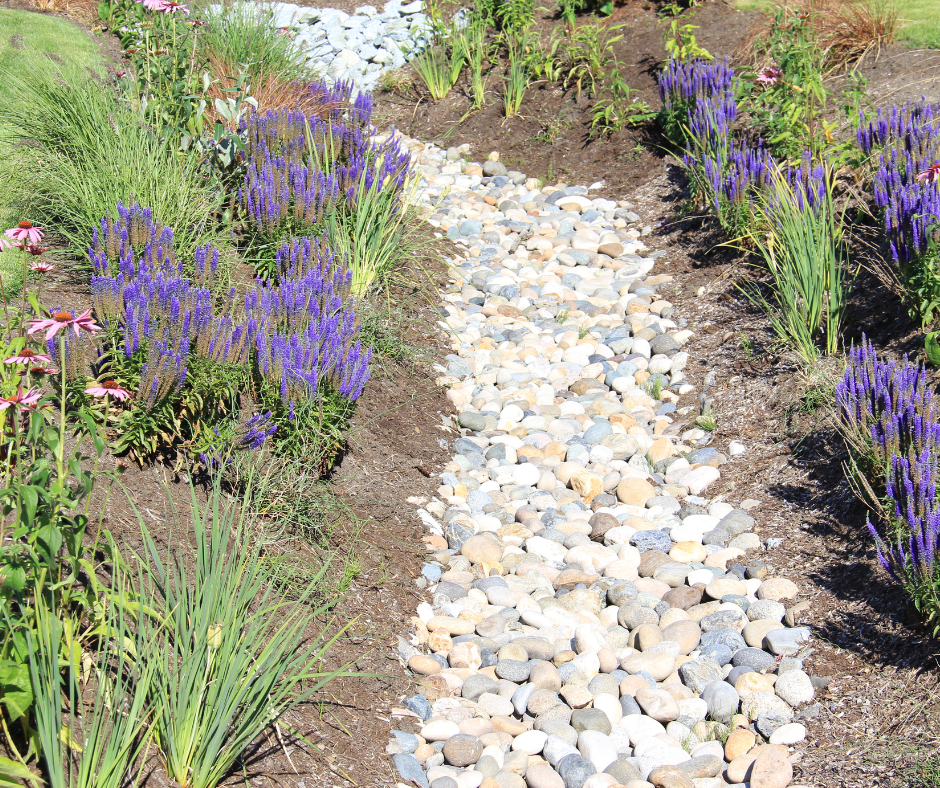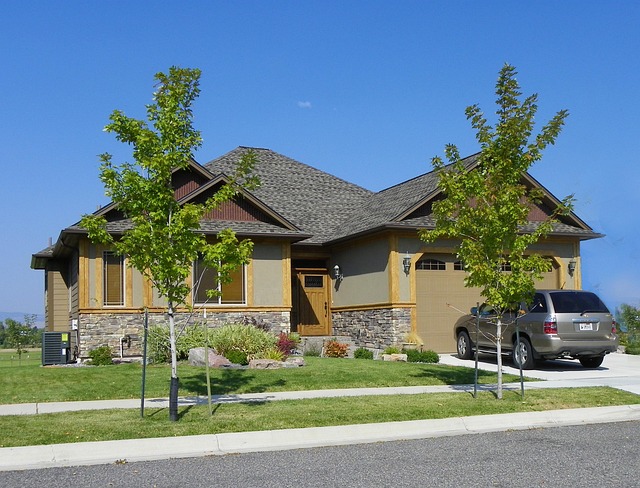After completing over 2,000 home inspections across northern Michigan, I’ve seen the same preventable problems over and over again. As a Board Certified Master Inspector® (CMI®), my job is to evaluate safety, structural, and functional issues in properties—not to assess market value. That’s the expertise of realtors and property assessors, and I always defer to them for specific valuation questions.
But here’s what I can tell you: some of the most expensive problems I discover during inspections could have been prevented with smart landscaping choices. Home inspection landscaping issues are among the most common and costly problems I encounter. From foundation damage to drainage failures, the outdoor environment directly impacts a home’s structural integrity and long-term maintenance costs.
Based on my decade+ of experience evaluating properties throughout northern Michigan, let me share how proper landscaping can help you avoid the costly home inspection landscaping issues that often surprise homebuyers—and sometimes derail sales entirely.
What Are the Most Common Home Inspection Landscaping Issues?
During my property inspections across northern Michigan, these landscape-related problems show up again and again:
- Poor grading causing water infiltration – I’ve found basement moisture, foundation settling, and structural damage from water pooling against foundations
- Overgrown vegetation damaging structures – Tree branches scraping siding and roofs, roots cracking foundations, and shrubs blocking proper ventilation
- Inadequate drainage systems – Clogged gutters, missing downspout extensions, and improper surface water management leading to ice dams and foundation problems
- Unsafe walkways and steps – Cracked, heaving, or improperly installed hardscaping creating trip hazards and liability concerns
- Poorly maintained decks and outdoor structures – Loose railings, rotting boards, inadequate footings, and structural connections that create safety hazards and/or structural concerns
- Improperly installed outdoor electrical – GFCI protection missing from outdoor outlets and non-weatherproof electrical boxes
- Pest entry points created by landscaping – Mulch against siding, overgrown areas providing rodent harborage, and tree branches creating roof access
- Soil erosion problems – Exposed foundations, undermined walkways, and slope instability from poor plant selection
These home inspection landscaping issues cost northern Michigan homeowners thousands in repairs and can significantly impact property desirability.
How Poor Drainage Creates the Worst Property Inspection Problems
Improper grading is the foundation of most serious home inspection landscaping issues I encounter. In our climate with heavy spring snowmelts and intense summer storms, I consistently see dry basements and stable foundations on properties where the landscape slopes away from the house at the recommended 6 inches over the first 10 feet.
Just last month, I inspected two nearly identical homes in Petoskey built the same year. One had proper drainage and strategic landscaping—bone dry basement, no cracks, perfect condition. The neighbor’s house? Standing water issues, foundation settling, and a $15,000 repair estimate. The difference? One homeowner understood that landscaping prevents inspection problems.

Rain gardens and permeable surfaces solve many northern Michigan drainage challenges. The Environmental Protection Agency reports that properly designed rain gardens can reduce runoff by 30-90%. In my experience, homes with thoughtful water management systems rarely have the drainage-related inspection issues that can derail a sale or cost thousands in repairs.
Property owners who address grading problems before they become inspection issues save money and stress during the selling process.
How Plant Selection Impacts Property Inspection Results
Poor plant choices create many avoidable home inspection landscaping issues in northern Michigan.
I’ve crawled under too many houses where aggressive root systems from inappropriate plantings have cracked foundations or clogged drainage tiles. Plants like serviceberry and ninebark provide beauty without the destructive root systems I often find from faster-growing non-native species.
Tree placement matters more than most homeowners realize during property inspections. Michigan State University Extension recommends keeping large trees at least 20 feet from foundations, and I’ve seen why. During my northern Michigan home inspections, I regularly find foundation damage, roof problems, and siding issues from trees planted too close to structures.
For privacy screening, I consistently see better long-term results with arborvitae (Thuja occidentalis) over faster-growing options. While they take longer to establish, they’re less likely to outgrow their space or cause the structural problems that show up during property inspections.
Smart plant selection prevents many common home inspection landscaping issues and protects your investment long-term. Remember though that even plants with non-invasive root systems need to be planted a respectful distance from your home or other structure. You should also be sure to prune back any branches that are growing too near the home during your spring and fall yard clean-ups.
What Quality Hardscaping Looks Like During Property Inspections
Walkways and patios that survive northern Michigan’s freeze-thaw cycles share common characteristics I’ve observed across hundreds of property inspections.
Quality installation starts below ground. Proper base preparation with compacted gravel and sand prevents the heaving and cracking I see in cheaper installations. The Concrete Paver Institute recommends specific base depths for northern climates, and I can tell during inspections which contractors followed these guidelines.
Retaining walls serve crucial functions beyond aesthetics in northern Michigan home inspections. Properly engineered walls with adequate drainage can help prevent the soil erosion and foundation exposure issues I regularly encounter on sloped properties throughout the region.
When hardscaping is done right, it enhances property appeal rather than creating inspection concerns.
Safety Issues I Discover That Landscaping Can Prevent
Outdoor electrical installations often don’t meet current safety standards.
During property inspections, I frequently find GFCI protection missing from outdoor outlets and electrical boxes that aren’t weatherproof. The National Electrical Code requires specific installation methods for outdoor electrical that many DIY projects ignore. While home inspections don’t typically cover landscape lighting and irrigation systems specifically, we do evaluate outdoor electrical components of your home (outlets and exterior lights attached to the home) for functionality and safety.
Ice and snow management becomes a safety liability when walkways and steps aren’t properly designed. I document trip hazards, inadequate drainage that creates ice buildup, and handrails that don’t meet current codes. Smart landscape design eliminates many of these inspection findings before they become problems.
Pest prevention starts with proper landscape maintenance. I regularly find evidence of rodents, insects, and wildlife entry where vegetation is allowed to grow against structures or where mulch is piled against siding.
These safety-related home inspection landscaping issues create liability concerns and can impact property marketability.
How Professional Home Inspections Help Your Landscaping Investment

A thorough property inspection identifies existing issues before you invest in landscaping improvements. As a Certified Master Inspector® serving northern Michigan, I evaluate drainage patterns and structural concerns that should inform your landscape planning.
I often recommend clients address inspection findings before major landscape investments. Why install beautiful hardscaping over a drainage tile that needs repair? Smart sequencing saves money and prevents future home inspection landscaping issues.
Post-installation inspections can verify that landscape contractors followed proper procedures for outdoor electrical, drainage, and structural elements. Many homeowners don’t realize that some landscape work requires permits and inspections to ensure safety and code compliance.
Understanding potential inspection concerns helps you make informed landscaping decisions that enhance rather than hurt your property.
Preventing Home Inspection Landscaping Issues in Northern Michigan
Smart landscaping prevents the expensive problems I regularly discover during property inspections. While I can’t determine property values, I can tell you that homes with thoughtful landscape design consistently show fewer structural issues, better drainage, and improved safety features.
Every week, I inspect northern Michigan properties where simple landscape improvements could have prevented thousands of dollars in repairs. From proper grading that keeps basements dry to plant selection that doesn’t damage foundations, the right outdoor choices protect your investment.
Whether you’re preparing for a home inspection or planning landscape improvements, remember that in northern Michigan, landscaping isn’t just about beauty—it’s about protection. Work with contractors who understand our climate challenges and local building requirements.
If you’re buying or selling in northern Michigan and want a thorough evaluation of how landscaping and drainage might be affecting your property, contact North Point Home & Property Inspections. With my CMI® certification and over a decade of local experience, I’ll identify potential home inspection landscaping issues before they become expensive surprises.
Editor’s Note: This article was originally published as “Maximizing Property Value with Smart Landscaping” and has been substantially updated and revised in June 2025 to better reflect the expertise and perspective of Scott Frakes, CMI®. The updated content focuses specifically on common landscaping-related issues discovered during home inspections in northern Michigan, providing readers with actionable insights based on over a decade of professional inspection experience. Changes include restructured content emphasizing inspection findings, added safety considerations, expanded coverage of regional climate challenges, and enhanced focus on problem prevention rather than general landscaping advice.
Last Updated: June 19, 2025

About Scott Frakes, CMI®: Scott is a Board Certified Master Inspector® and owner of North Point Home & Property Inspections, LLC, serving northern Michigan from Gaylord. With over 1,000 completed inspections and more than a decade of experience in the region, Scott is certified through InterNACHI (International Association of Certified Home Inspectors) and maintains over 24 specialized inspection certifications. He provides comprehensive property evaluations that help buyers and sellers understand the true condition of northern Michigan real estate. Investing in these upgrades today ensures long-term appeal and a higher return on investment when it’s time to sell.

